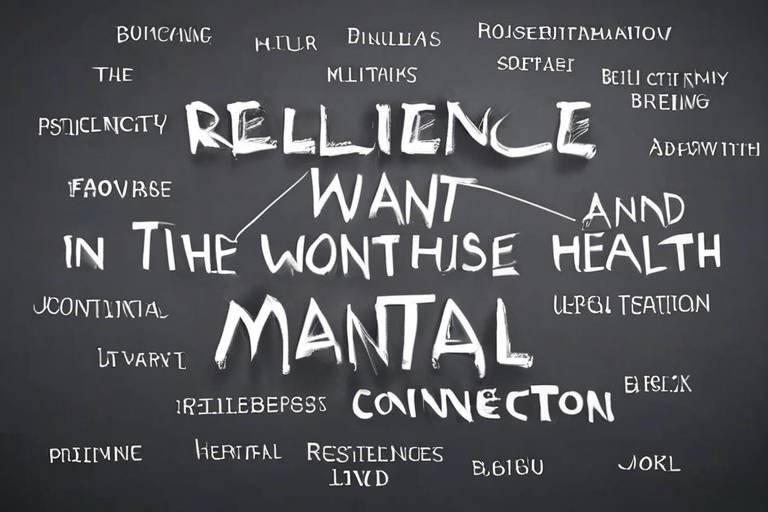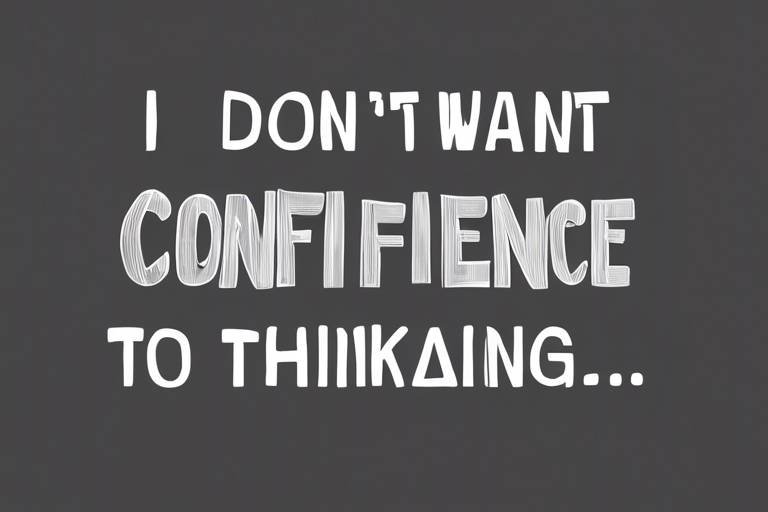How Confidence Affects Academic Performance?
Confidence is a powerful catalyst in the realm of education. It acts like a double-edged sword, wielding the potential to either uplift or undermine a student’s academic journey. When we talk about confidence in the context of learning, it’s not just about believing in oneself; it’s about the ripple effects that self-belief creates in various aspects of academic life. Imagine a student standing on the edge of a diving board, peering down into the water. That moment of hesitation can either lead to a graceful dive or a timid retreat. In the same way, a student’s confidence can determine whether they dive headfirst into challenges or shy away from them entirely.
Research shows that students who possess a strong sense of self-efficacy are more likely to engage actively in their studies, tackle difficult subjects, and persist through setbacks. This engagement is crucial, as it not only enhances learning outcomes but also fosters a love for learning. When students feel confident, they are more inclined to participate in classroom discussions, ask questions, and seek help when needed. This increased engagement creates a richer educational experience, allowing them to grasp concepts more thoroughly and retain information longer.
Moreover, confidence plays a pivotal role in academic motivation. Think of it as the fuel that keeps the engine running. Students who believe in their capabilities are more likely to set ambitious goals and strive to achieve them. They view challenges as opportunities for growth rather than insurmountable obstacles. This mindset is essential in today’s competitive academic landscape, where resilience and adaptability are key to success. So, how does one cultivate this invaluable confidence? It often begins with small victories—mastering a challenging concept, receiving positive feedback, or successfully completing a project. Each success builds upon the last, creating a solid foundation of self-belief that can propel students toward their academic aspirations.
Ultimately, confidence is not just an abstract concept; it’s a tangible force that shapes students' educational experiences. It influences their interactions with peers and teachers, their approach to learning, and their overall academic performance. As we delve deeper into the nuances of confidence and its impact on education, we’ll uncover the various factors that contribute to this dynamic relationship. From self-esteem and preparation to the role of feedback and classroom engagement, understanding how confidence intertwines with academic performance is essential for both students and educators alike.
Self-esteem plays a crucial role in how students perceive their abilities. Higher self-esteem often leads to greater academic motivation and resilience in the face of challenges. When students believe in their worth and capabilities, they are more likely to take risks in their learning journey. This willingness to step outside their comfort zones can lead to significant growth and development. Conversely, low self-esteem can create a cycle of negativity, where students shy away from challenges and miss out on valuable learning opportunities. Thus, fostering a healthy self-esteem is essential for academic success.
Confidence directly affects test-taking abilities. Students who believe in their skills tend to perform better, showcasing the importance of mental preparedness in achieving academic goals. The anxiety that often accompanies exams can be debilitating, but a confident mindset acts as a buffer against this stress. When students trust their preparation and abilities, they are more likely to approach tests with a calm and focused demeanor, leading to improved performance.
Effective preparation enhances confidence levels, creating a positive feedback loop. Students who prepare thoroughly often feel more capable and, consequently, perform better in assessments. This correlation is crucial; it’s not just about cramming information but about understanding the material deeply and building a solid foundation. Preparation can take many forms, including:
- Consistent study habits
- Active engagement with the material
- Seeking help when needed
Each of these strategies contributes to a student’s overall confidence and readiness for academic challenges.
Implementing effective study techniques can significantly enhance a student's confidence. Methods like active learning and consistent practice contribute to a stronger belief in one's academic abilities. For instance, group study sessions can provide support and encouragement while reinforcing knowledge through discussion. Similarly, utilizing resources like flashcards or educational apps can make learning more interactive and enjoyable, further boosting confidence levels.
Receiving constructive feedback from teachers and peers can bolster a student's confidence. Positive reinforcement encourages continued effort and fosters a growth mindset. When students understand that their efforts are recognized and valued, they are more likely to engage fully in their learning process. This feedback loop is vital in helping students navigate their academic journeys with assurance.
Confidence influences students' willingness to participate in class discussions. Engaged students are more likely to express their ideas, leading to deeper understanding and retention of material. This active participation not only enhances their learning experience but also contributes to a positive classroom atmosphere, where students feel empowered to share and learn from one another.
Socioeconomic background can impact a student's confidence levels. Understanding these influences is essential for educators to create supportive environments that foster academic success for all learners. Students from lower socioeconomic backgrounds may face additional challenges that can undermine their confidence. It’s crucial for schools to implement programs that provide equal opportunities and resources to all students, leveling the playing field.
Access to support systems, such as tutoring and mentoring, can enhance students' confidence. These resources provide guidance and encouragement, helping students overcome barriers to academic achievement. When students know they have a safety net, they are more likely to take risks and challenge themselves academically.
Peer relationships significantly impact confidence. Positive peer interactions can enhance self-belief, while negative experiences can undermine it, affecting overall academic performance. Building a supportive peer network is vital for students, as it fosters an environment where they can thrive and feel secure in expressing their thoughts and ideas.
Q1: How can I help my child build confidence in their studies?
A1: Encourage them to set achievable goals, celebrate their successes, and provide a supportive environment where they feel safe to ask questions and seek help.
Q2: What role does a teacher play in boosting student confidence?
A2: Teachers can provide constructive feedback, create a positive classroom environment, and offer encouragement, all of which contribute to building student confidence.
Q3: Can confidence be developed over time?
A3: Absolutely! Confidence can be cultivated through practice, preparation, and positive reinforcement. Small successes can build a foundation for greater confidence in the future.

The Role of Self-Esteem in Learning
This article explores the relationship between confidence and academic success, examining how self-belief influences learning outcomes, motivation, and classroom engagement, ultimately shaping students’ educational experiences.
Self-esteem plays a crucial role in how students perceive their abilities. When students possess higher self-esteem, they are more likely to approach learning tasks with a sense of optimism and determination. Imagine walking into a classroom feeling like a champion ready to tackle any challenge ahead; that’s the power of self-esteem. It’s like having an invisible shield that protects you from the arrows of doubt and fear. Students with strong self-esteem often exhibit greater academic motivation and resilience in the face of challenges. They are not easily discouraged by setbacks and are more willing to put in the effort needed to succeed.
Moreover, self-esteem can significantly influence how students engage with their studies. When learners believe in their capabilities, they are more inclined to participate actively in class discussions, ask questions, and seek help when needed. This active engagement fosters a deeper understanding of the material, as students are not just passive recipients of information but active participants in their learning journey.
Interestingly, self-esteem is not a fixed trait; it can fluctuate based on various factors, including academic performance, social interactions, and personal experiences. For instance, a student who receives positive feedback from a teacher may feel a boost in self-esteem, which can lead to improved performance in subsequent tasks. Conversely, negative experiences, such as poor grades or harsh criticism, can diminish self-esteem and hinder academic progress.
To illustrate the impact of self-esteem on learning, consider the following table:
| Self-Esteem Level | Academic Engagement | Performance Outcomes |
|---|---|---|
| High | Active participation, willingness to take risks | Consistent high grades, deeper understanding |
| Medium | Occasional participation, some hesitation | Variable grades, moderate understanding |
| Low | Avoidance of participation, reluctance to engage | Struggles with grades, superficial understanding |
In summary, self-esteem is a vital component of the learning process. It shapes how students perceive their abilities and influences their motivation and engagement in academic activities. By fostering environments that boost self-esteem, educators can help students unlock their full potential, leading to improved academic performance and a more enriching educational experience.
- How can parents help improve their child's self-esteem?
Parents can boost their child's self-esteem by providing positive reinforcement, encouraging their efforts, and helping them set achievable goals. Regularly celebrating small victories can significantly enhance their self-belief.
- What role do teachers play in building student self-esteem?
Teachers can create a supportive classroom environment by offering constructive feedback, recognizing individual strengths, and promoting a growth mindset. This approach helps students see challenges as opportunities for growth rather than obstacles.
- Can self-esteem be improved in students with learning difficulties?
Absolutely! With the right support systems, such as tutoring and tailored learning strategies, students with learning difficulties can develop their self-esteem. It's essential to focus on their progress and celebrate their unique strengths.

Impact of Confidence on Test Performance
Confidence plays a crucial role in how students approach tests and assessments. When students believe in their abilities, they are more likely to tackle exam questions with a positive mindset. This self-assuredness translates into better performance, as it allows them to focus on the task at hand rather than succumbing to anxiety. Think of it like a sports game: a player who believes they can score is much more likely to take the shot than one who doubts their skills. This is not just a matter of feeling good; confidence can actually enhance cognitive function, leading to improved recall and problem-solving abilities during tests.
Research has shown that students with higher confidence levels tend to achieve better grades. For instance, a study conducted by educational psychologists revealed that students who rated their confidence as above average scored significantly higher on standardized tests compared to their less confident peers. The difference in performance can often be attributed to the way confident students approach their studies and tests:
| Confidence Level | Average Score | Study Habits |
|---|---|---|
| High Confidence | 85% | Regular review, practice tests |
| Medium Confidence | 75% | Occasional studying, minimal practice |
| Low Confidence | 65% | Avoidance, cramming |
As illustrated in the table above, there’s a clear correlation between confidence levels and academic performance. Students with high confidence are more likely to engage in effective study habits, which, in turn, reinforces their self-belief. This creates a positive feedback loop: the more they prepare, the more confident they feel, and the better they perform. On the flip side, students who lack confidence may struggle with motivation, leading to poor study habits and, ultimately, disappointing results.
Moreover, confidence influences how students handle the pressure of testing environments. Students who are self-assured are more likely to approach tests with a calm demeanor, allowing their knowledge and skills to shine through. In contrast, those who doubt themselves may experience test anxiety, which can cloud their thinking and hinder performance. This is why fostering confidence is essential for academic success.
In conclusion, the impact of confidence on test performance cannot be overstated. It shapes not only how students prepare for exams but also how they perform under pressure. Building confidence through effective study habits, positive reinforcement, and a supportive learning environment can significantly enhance students' academic achievements.
- How can I boost my confidence before a test? Practice regularly, review material thoroughly, and engage in positive self-talk.
- What role does feedback play in building confidence? Constructive feedback helps students understand their strengths and areas for improvement, fostering a growth mindset.
- Can confidence be developed over time? Absolutely! With consistent effort and the right support, students can build their confidence levels gradually.

Preparation and Confidence Correlation
When we talk about the relationship between preparation and confidence, it’s like discussing the bond between a sturdy foundation and a towering skyscraper. Just as a well-built foundation supports a magnificent building, effective preparation lays the groundwork for a student's confidence to flourish. Imagine walking into an exam room feeling unprepared; that gnawing anxiety can be overwhelming. However, when students invest time in studying and mastering the material, they begin to feel a sense of control and assurance in their abilities.
Research has shown that students who engage in thorough preparation often report higher levels of self-confidence. This is not just a coincidence; it’s a psychological phenomenon. When students prepare adequately, they are not only familiarizing themselves with the content but also practicing the skills necessary to tackle challenges. This practice leads to a positive feedback loop: the more they prepare, the more confident they become, and the more confident they feel, the better they perform.
Consider the following ways in which preparation enhances confidence:
- Mastery of Content: When students understand the material, they are less likely to second-guess themselves during tests.
- Practice Makes Perfect: Regular practice helps solidify knowledge, reducing anxiety and boosting self-assurance.
- Time Management: Effective preparation often involves planning and organizing study schedules, which can alleviate last-minute stress.
Furthermore, preparation isn't just about cramming information; it's about developing a strategic approach to learning. For instance, utilizing study techniques such as active learning—where students engage with the material through discussions, teaching others, or applying concepts in real-life scenarios—can significantly enhance their understanding and retention. This deep engagement with the material fosters a sense of competence and readiness, which translates into greater confidence.
In essence, the correlation between preparation and confidence is undeniable. Students who take the time to prepare effectively not only equip themselves with knowledge but also cultivate a resilient mindset. This resilience is crucial, especially when faced with academic challenges. Just as athletes train for competitions, students must train their minds through diligent preparation to achieve their best potential. The outcome? A boost in confidence that can propel them toward academic success.
- How does preparation impact academic performance?
Preparation enhances understanding, reduces anxiety, and boosts confidence, leading to improved academic performance. - Can confidence affect my study habits?
Yes! Higher confidence often leads to more effective study habits and a willingness to engage with challenging material. - What are some effective study techniques?
Techniques like active learning, spaced repetition, and group study can significantly enhance preparation and confidence.

Study Techniques to Boost Confidence
This article explores the relationship between confidence and academic success, examining how self-belief influences learning outcomes, motivation, and classroom engagement, ultimately shaping students’ educational experiences.
Self-esteem plays a crucial role in how students perceive their abilities. Higher self-esteem often leads to greater academic motivation and resilience in the face of challenges.
Confidence directly affects test-taking abilities. Students who believe in their skills tend to perform better, showcasing the importance of mental preparedness in achieving academic goals.
Effective preparation enhances confidence levels, creating a positive feedback loop. Students who prepare thoroughly often feel more capable and, consequently, perform better in assessments.
Implementing effective study techniques can significantly enhance a student's confidence. One of the most impactful methods is active learning, where students engage with the material rather than passively reading or listening. This might involve discussing topics with peers, teaching concepts to others, or applying knowledge through practical exercises. For example, when a student explains a complex topic to a friend, they reinforce their understanding and boost their self-belief.
Another technique is consistent practice. Regularly revisiting material helps solidify knowledge and reduces anxiety when facing assessments. Think of it like training for a sport; the more you practice, the more confident you feel in your abilities. Creating a study schedule can assist in maintaining this consistency, allowing students to allocate specific times for different subjects or topics.
Additionally, using visual aids such as charts, diagrams, and flashcards can cater to various learning styles and enhance memory retention. When students visualize information, they are more likely to recall it during tests, further reinforcing their confidence. Moreover, breaking down complex topics into manageable chunks makes studying less overwhelming and more achievable.
Lastly, incorporating self-reflection into study habits can be transformative. Encouraging students to assess their understanding and identify areas for improvement fosters a growth mindset. This approach helps them recognize that challenges are opportunities for learning, which can significantly elevate their confidence levels over time.
Receiving constructive feedback from teachers and peers can bolster a student's confidence. Positive reinforcement encourages continued effort and fosters a growth mindset.
Confidence influences students' willingness to participate in class discussions. Engaged students are more likely to express their ideas, leading to deeper understanding and retention of material.
Socioeconomic background can impact a student's confidence levels. Understanding these influences is essential for educators to create supportive environments that foster academic success for all learners.
Access to support systems, such as tutoring and mentoring, can enhance students' confidence. These resources provide guidance and encouragement, helping students overcome barriers to academic achievement.
Peer relationships significantly impact confidence. Positive peer interactions can enhance self-belief, while negative experiences can undermine it, affecting overall academic performance.
- How can I build my confidence in studying? Start with active learning techniques, practice regularly, and seek feedback from peers and teachers.
- Does confidence really affect test scores? Yes, students who believe in their abilities tend to perform better on tests due to reduced anxiety and increased focus.
- What role does self-esteem play in academic success? Higher self-esteem often leads to greater motivation and resilience, which are crucial for overcoming academic challenges.
- Can peer relationships influence my confidence? Absolutely! Positive interactions with peers can enhance self-belief, while negative experiences may have the opposite effect.

The Role of Positive Feedback
Positive feedback is like a breath of fresh air in the often-challenging landscape of academic life. It serves as a powerful motivator for students, reinforcing their efforts and encouraging them to strive for excellence. When students receive constructive praise, it not only boosts their confidence but also nurtures a sense of belonging and validation within the classroom environment. Imagine a garden where every flower blooms brighter when given sunlight and water; similarly, students flourish when acknowledged for their hard work and achievements.
Moreover, positive feedback helps students recognize their strengths and areas for improvement. It creates a roadmap for learning, allowing them to understand what they excel at and where they need to focus their efforts. This feedback loop is crucial, as it fosters a growth mindset, encouraging students to view challenges as opportunities rather than obstacles. When students feel supported, they are more likely to take risks in their learning, participate in discussions, and push themselves beyond their comfort zones.
Here are a few ways positive feedback can impact students:
- Increased Motivation: When students hear affirmations about their efforts, it ignites a spark of motivation. They feel more inclined to engage with the material, knowing their hard work is recognized.
- Enhanced Self-Efficacy: Positive feedback reinforces students' belief in their abilities. This self-efficacy is crucial for tackling complex subjects and projects.
- Improved Resilience: Constructive praise helps students develop resilience. When they encounter setbacks, they are more likely to bounce back, armed with the knowledge that their efforts matter.
Teachers play a vital role in delivering positive feedback effectively. It’s not just about saying, “Good job!” but rather providing specific insights that highlight what the student did well. For instance, instead of a generic compliment, a teacher might say, “I really appreciate how you organized your thoughts in that essay. It made your argument much clearer.” This specificity not only affirms the student’s effort but also guides them on how to replicate that success in the future.
In conclusion, the role of positive feedback cannot be overstated. It acts as a catalyst for academic growth, fostering a supportive environment where students feel empowered to take risks and pursue their educational goals. Just like a sturdy bridge that supports travelers across a river, positive feedback helps students navigate their academic journeys with confidence and assurance.
- What is positive feedback? Positive feedback is constructive praise that acknowledges a person's efforts and achievements, helping to build their confidence and motivation.
- How does positive feedback influence academic performance? It boosts students' self-esteem, encourages engagement, and fosters a growth mindset, all of which contribute to better academic outcomes.
- Can negative feedback be beneficial? While constructive criticism is important, it should be balanced with positive feedback to ensure students remain motivated and focused on improvement.

Classroom Participation and Engagement
This article explores the relationship between confidence and academic success, examining how self-belief influences learning outcomes, motivation, and classroom engagement, ultimately shaping students’ educational experiences.
Self-esteem plays a crucial role in how students perceive their abilities. Higher self-esteem often leads to greater academic motivation and resilience in the face of challenges.
Confidence directly affects test-taking abilities. Students who believe in their skills tend to perform better, showcasing the importance of mental preparedness in achieving academic goals.
Effective preparation enhances confidence levels, creating a positive feedback loop. Students who prepare thoroughly often feel more capable and, consequently, perform better in assessments.
Implementing effective study techniques can significantly enhance a student's confidence. Methods like active learning and consistent practice contribute to a stronger belief in one's academic abilities.
Receiving constructive feedback from teachers and peers can bolster a student's confidence. Positive reinforcement encourages continued effort and fosters a growth mindset.
Confidence plays a pivotal role in students' willingness to participate in classroom discussions. When students believe in their abilities, they are more likely to raise their hands, share their thoughts, and engage actively with the material being taught. This engagement not only enhances their understanding of the subject but also contributes to a more dynamic and interactive learning environment. Think about it: when you're confident, you feel empowered to speak up, ask questions, and express your ideas without the fear of judgment.
Moreover, classroom participation is often linked to better retention of information. When students engage in discussions, they are not just passively absorbing information; they are actively processing and analyzing it. This active involvement can lead to improved academic performance. In fact, studies show that students who frequently participate in class discussions tend to achieve higher grades compared to their less-engaged peers.
However, the level of participation can vary greatly among students. Factors such as personality traits, prior experiences, and even classroom dynamics can influence how comfortable a student feels about participating. For instance, a supportive classroom environment where teachers encourage questions and discussions can significantly boost students' confidence, making them more likely to engage. Conversely, a competitive or judgmental atmosphere can lead to anxiety and inhibit participation.
To foster a culture of participation, educators can implement strategies like:
- Encouraging group discussions where students can share ideas in a less intimidating setting.
- Using technology, such as interactive polls or discussion boards, to make participation more accessible.
- Providing regular opportunities for all students to contribute, ensuring that quieter students have a chance to speak up.
Ultimately, the connection between confidence and classroom participation highlights the importance of creating an inclusive and supportive learning environment. When students feel confident, they are not just more likely to participate; they are also more likely to thrive academically.
Socioeconomic background can impact a student's confidence levels. Understanding these influences is essential for educators to create supportive environments that foster academic success for all learners.
Access to support systems, such as tutoring and mentoring, can enhance students' confidence. These resources provide guidance and encouragement, helping students overcome barriers to academic achievement.
Peer relationships significantly impact confidence. Positive peer interactions can enhance self-belief, while negative experiences can undermine it, affecting overall academic performance.
- How can teachers boost students' confidence in the classroom?
Teachers can create a supportive environment, offer positive feedback, and encourage participation through group activities. - What role does self-esteem play in academic success?
Higher self-esteem can lead to increased motivation and resilience, which are crucial for overcoming academic challenges. - Are there specific study techniques that help build confidence?
Active learning, consistent practice, and self-reflection are effective techniques that can enhance a student's belief in their abilities.

Socioeconomic Factors and Confidence
When we talk about confidence, we can't ignore the elephant in the room: socioeconomic factors. These factors play a significant role in shaping a student's self-belief and, consequently, their academic performance. Imagine a student from a well-off family who has access to resources like tutors, extracurricular activities, and a quiet place to study. Now, contrast that with a student from a low-income background who may struggle to find time for homework amid work or family obligations. The disparity is striking, isn't it? This difference in resources can lead to varying levels of confidence, which directly impacts how students approach their studies.
Research has shown that students from higher socioeconomic backgrounds often exhibit greater confidence in their academic abilities. They are more likely to participate in class discussions, engage with their peers, and take on challenging tasks. In contrast, students from lower socioeconomic backgrounds may experience a lack of support and encouragement, leading to feelings of inadequacy and self-doubt. This cycle can perpetuate itself, as lower confidence levels lead to poorer academic performance, which in turn reinforces negative beliefs about their abilities.
To illustrate this point, consider the following table that highlights some key differences in resources and opportunities between students from varying socioeconomic backgrounds:
| Factors | High Socioeconomic Status | Low Socioeconomic Status |
|---|---|---|
| Access to Educational Resources | High (tutors, books, technology) | Low (limited access to materials) |
| Parental Support | High (involvement and encouragement) | Low (may be busy or unable to help) |
| Extracurricular Opportunities | Abundant (sports, arts, clubs) | Scarce (fewer options available) |
| Peer Influence | Positive (supportive friendships) | Negative (peer pressure, bullying) |
Understanding these socioeconomic influences is crucial for educators and policymakers. By creating supportive environments that recognize and address these disparities, we can help foster confidence in all students, regardless of their background. For instance, implementing programs that provide mentorship, tutoring, and resources can significantly improve students' self-esteem and academic performance. It's not just about leveling the playing field; it's about empowering every student to believe in their potential and achieve their dreams.
In conclusion, socioeconomic factors are a vital piece of the puzzle when it comes to confidence and academic performance. By acknowledging these influences and working to mitigate their impact, we can nurture a generation of confident learners ready to tackle the challenges of the future.
- How can teachers support students from low socioeconomic backgrounds?
Teachers can provide additional resources, offer after-school tutoring, and create a welcoming classroom environment that encourages participation. - What role do parents play in boosting their child's confidence?
Parental involvement is crucial; encouraging words and support can significantly enhance a child's self-belief and motivation. - Can peer relationships affect confidence levels?
Absolutely! Positive peer interactions can uplift a student’s confidence, while negative experiences can undermine it.

Support Systems and Resources
Support systems and resources play a pivotal role in enhancing students' confidence and overall academic performance. Imagine trying to climb a mountain without any gear or guidance; it would be daunting, right? Similarly, students often face challenges that can feel overwhelming, but with the right support, they can navigate these obstacles more effectively. Access to resources such as tutoring, mentoring, and counseling can provide the necessary scaffolding that students need to succeed.
For instance, tutoring can offer personalized assistance that helps students grasp difficult concepts. When a student struggles with a subject, having a tutor who can explain things in a different way can make all the difference. This tailored support not only improves understanding but also boosts self-esteem as students begin to see their progress. Furthermore, mentorship programs can connect students with experienced individuals who can guide them through academic and personal challenges, providing a sense of belonging and encouragement.
Moreover, schools that foster a culture of support by providing access to resources like study groups, workshops, and counseling services create an environment where students feel valued and empowered. These initiatives can include:
- Tutoring Programs: One-on-one or group sessions that focus on specific subjects.
- Peer Mentoring: Pairing students with older peers who can offer guidance and support.
- Workshops: Sessions focused on study skills, time management, and test-taking strategies.
- Counseling Services: Professional help for students dealing with stress, anxiety, or personal issues.
In essence, the right support systems can transform a student's educational experience. They not only provide academic assistance but also foster resilience and a growth mindset. When students know they have a safety net to fall back on, they are more likely to take risks, participate in class, and tackle challenging assignments with confidence. This, in turn, leads to better academic outcomes and a more fulfilling educational journey.
Q: How can I find a tutor for my child?
A: Many schools offer tutoring programs or can recommend local tutoring services. Additionally, online platforms provide access to qualified tutors in various subjects.
Q: What if my child is too shy to ask for help?
A: Encourage open communication at home about the importance of seeking help. You can also speak with teachers to find out if they can provide additional support or resources.
Q: Are peer mentoring programs effective?
A: Yes, peer mentoring can be very effective as it allows students to connect with someone who has recently navigated similar challenges, making the advice relatable and actionable.
Q: How can I support my child's confidence in school?
A: Celebrate their efforts, encourage a growth mindset, and provide a supportive environment for learning at home. Engaging in their academic journey can also make a significant difference.

Peer Influence on Confidence
Peer relationships play a significant role in shaping a student's confidence levels, acting as both a support system and a potential source of pressure. When students surround themselves with positive and encouraging peers, they often experience a boost in their self-esteem and self-belief. This phenomenon can be likened to a rising tide that lifts all boats; when one student feels confident, it can create a ripple effect, inspiring others to feel the same way.
Conversely, negative peer interactions can lead to a decline in confidence. For instance, if a student is constantly criticized or belittled by their peers, it can create a sense of inadequacy that may hinder their academic performance. The classroom can quickly transform from a nurturing environment into a battleground of self-doubt, where students feel hesitant to share their thoughts or engage in discussions. This is why fostering a positive peer culture is essential in educational settings.
To illustrate the impact of peer influence on confidence, consider the following scenarios:
- Supportive Friends: A group of friends who encourage each other to study together can lead to improved academic performance. They share resources, discuss challenging topics, and celebrate each other's successes, creating a sense of camaraderie.
- Competitive Atmosphere: On the flip side, a highly competitive peer group may lead to anxiety and fear of failure. Students might feel pressured to outperform their friends, which can create stress and diminish their confidence.
It's important for educators and parents to recognize the influence of peer dynamics on confidence. By promoting teamwork and collaboration among students, they can help cultivate an environment where everyone feels valued and empowered. This not only enhances individual self-belief but also fosters a sense of community within the classroom.
Ultimately, the relationship between peers and confidence is a complex interplay that can either uplift or undermine a student's academic journey. By encouraging positive interactions and providing support, we can help students navigate the challenges of their educational experiences with greater self-assurance and resilience.
Q: How can I encourage my child to develop positive peer relationships?
A: Encourage your child to engage in group activities, join clubs, or participate in team sports where they can meet new friends and build supportive relationships.
Q: What should I do if my child is experiencing negative peer pressure?
A: Talk openly with your child about their experiences, help them develop coping strategies, and encourage them to seek out more positive friendships.
Q: Can teachers help improve peer relationships in the classroom?
A: Absolutely! Teachers can create group projects, promote inclusive activities, and facilitate discussions that encourage respect and understanding among students.
Frequently Asked Questions
- How does confidence influence academic performance?
Confidence plays a vital role in academic performance. When students believe in their abilities, they tend to engage more in learning activities, tackle challenges head-on, and ultimately achieve better results. It's like having a superpower that fuels motivation and resilience!
- What is the relationship between self-esteem and learning?
Self-esteem is closely linked to how students perceive their capabilities. Higher self-esteem often translates to increased motivation and a willingness to face academic challenges. Think of it as the foundation of a sturdy house; without it, everything else can crumble.
- Can preparation really boost my confidence?
Absolutely! Effective preparation not only equips you with knowledge but also builds your belief in your abilities. It's a positive cycle: the more prepared you are, the more confident you feel, and that confidence can lead to even better performance!
- What study techniques can help increase my confidence?
Techniques like active learning, consistent practice, and setting achievable goals can significantly enhance your confidence. These methods help you internalize information and reinforce your belief in your academic skills, making you feel like a champ in the classroom!
- How does positive feedback affect student confidence?
Positive feedback is like a booster shot for confidence! When students receive constructive comments from teachers and peers, it encourages them to keep trying and reinforces a growth mindset. It's all about building each other up!
- Why is classroom participation important for confidence?
Classroom participation allows students to express their ideas and engage with the material. This active involvement not only deepens their understanding but also fosters a sense of belonging and confidence in their contributions.
- How do socioeconomic factors affect student confidence?
Socioeconomic background can significantly impact a student's confidence levels. Understanding these influences is crucial for educators to create supportive environments that help all students thrive academically, regardless of their background.
- What role do support systems play in building confidence?
Access to support systems, like tutoring and mentoring, can greatly enhance students' confidence. These resources provide guidance and encouragement, helping students navigate challenges and boost their academic performance.
- How can peer relationships impact student confidence?
Peer relationships can have a profound effect on confidence. Positive interactions with peers can uplift and motivate students, while negative experiences can lead to self-doubt. It's essential to cultivate a supportive peer environment for academic success!



















